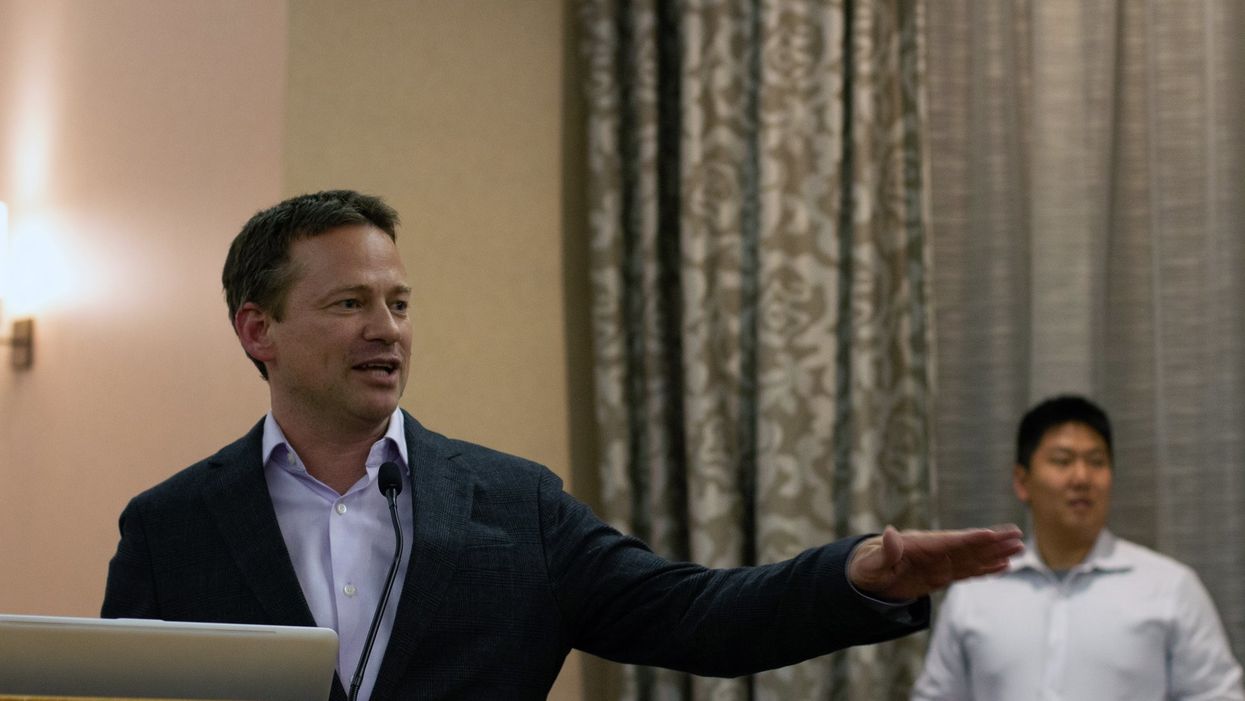Mike Monetta joined Wolf-PAC as one of its first volunteers in 2011 and now serves as its national director. The nonpartisan political action committee's goal is to amend the Constitution to allow for more legislation regulating the flow of big money into campaigns, which the Supreme Court ruled is now broadly protected by the First Amendment. Wolf-PAC advocated for what's known as an "Article V Convention," in which two-thirds of the states demand a constitutional convention. (The more common route for a constitutional amendment is for Congress to first pass an amendment and then seek ratification from the states.) Originally from New Hampshire, Monetta led efforts to get Vermont to become the first state calling for such a convention. His answers have been lightly edited for clarity and length.
What's the tweet-length description of your organization?
We are Americans, from all walks of life, using the power of our Constitution to fix corruption and restore a government of, by and for the people.
Describe your very first civic engagement.
I called my state representative in New Hampshire to talk about the Wolf-PAC Free & Fair Elections resolution. I was a new volunteer and had never spoken with an elected official on the phone before. In fact, I didn't even realize that was something people did! I was intimidated to make the call, but it ended up being a friendly and productive conversation. I realized that our representatives need to hear from us on issues, not only to let them know what we care about, but also to inform them on things they may not have a full understanding of.
What was your biggest professional triumph?
In 2014, I helped to make Vermont the first state in American history to call for an Article V Convention on the topic of campaign finance reform. I was proud to work with so many legislators in that statehouse, from all across the political spectrum, who understand the urgency of this issue and were willing to take action to fix it.
And your most disappointing setback?
Not making enough progress in the last couple of years has been difficult for myself and many others who put so much into this effort.
How does your identity influence the way you go about your work?
I identify as an average American citizen being oppressed by a system that wants to extract everything from us for profit, at the expense of our future. This motivates me to change the system sooner than later.
What's the best advice you've ever been given?
Lead by example. Don't ask anyone to do anything you haven't done yourself.
Create a new flavor for Ben & Jerry's.
Maple Wall St. — it's so good it should be a crime.
The West Wing or Veep?
Veep. It's hilarious, but I've also never seen The West Wing, so there's that.
What's the last thing you do on your phone at night?
Make sure all rings and notifications are turned OFF!
What is your deepest, darkest secret?
My brother and I occasionally skipped Catechism on Saturday mornings after our parents had dropped us off. If there is a God, we may have some issues.




















